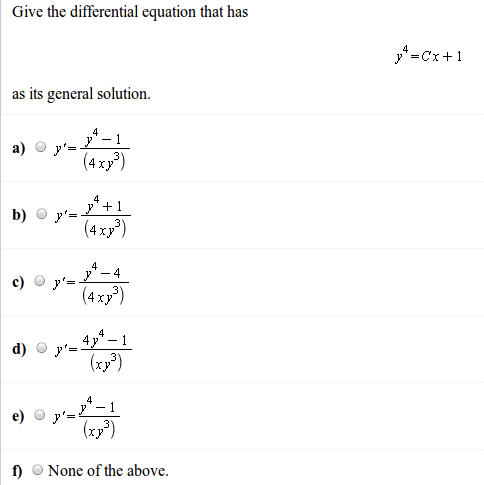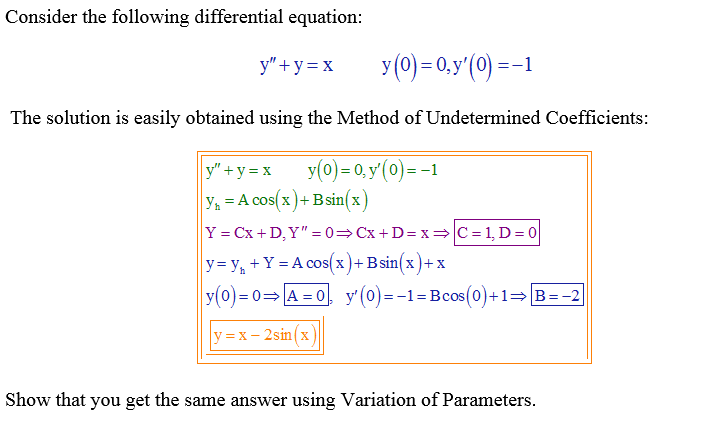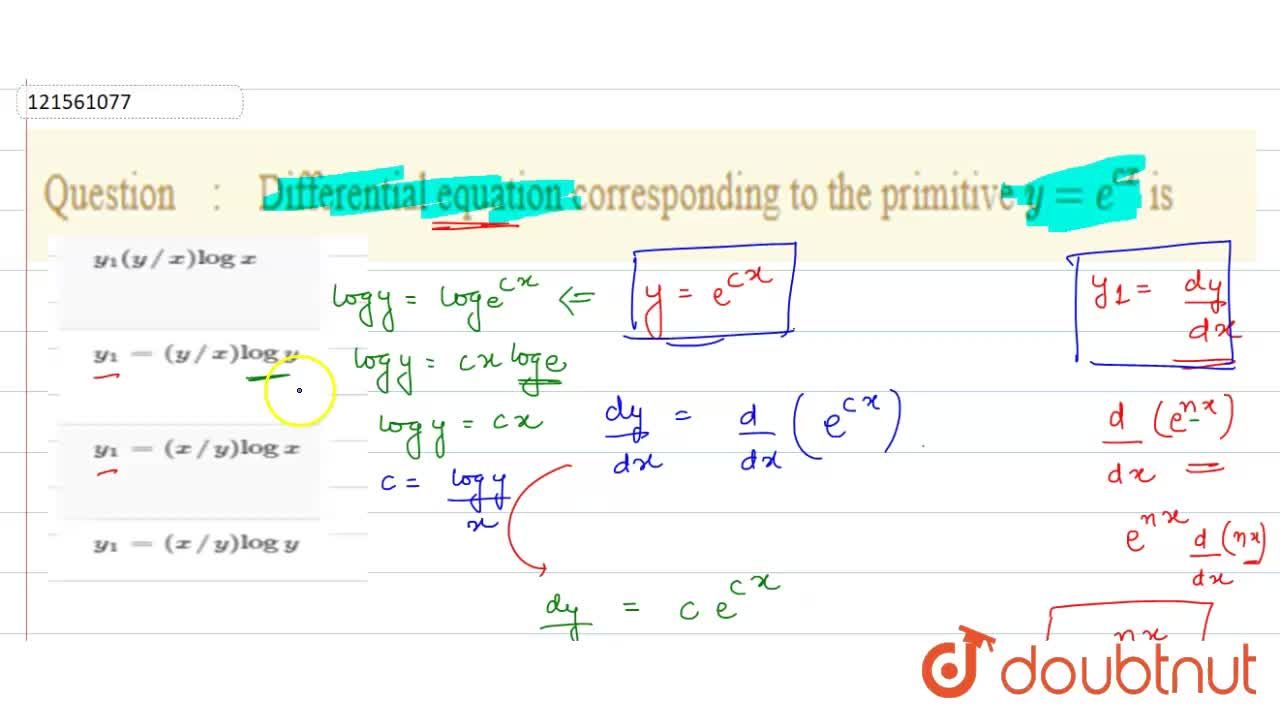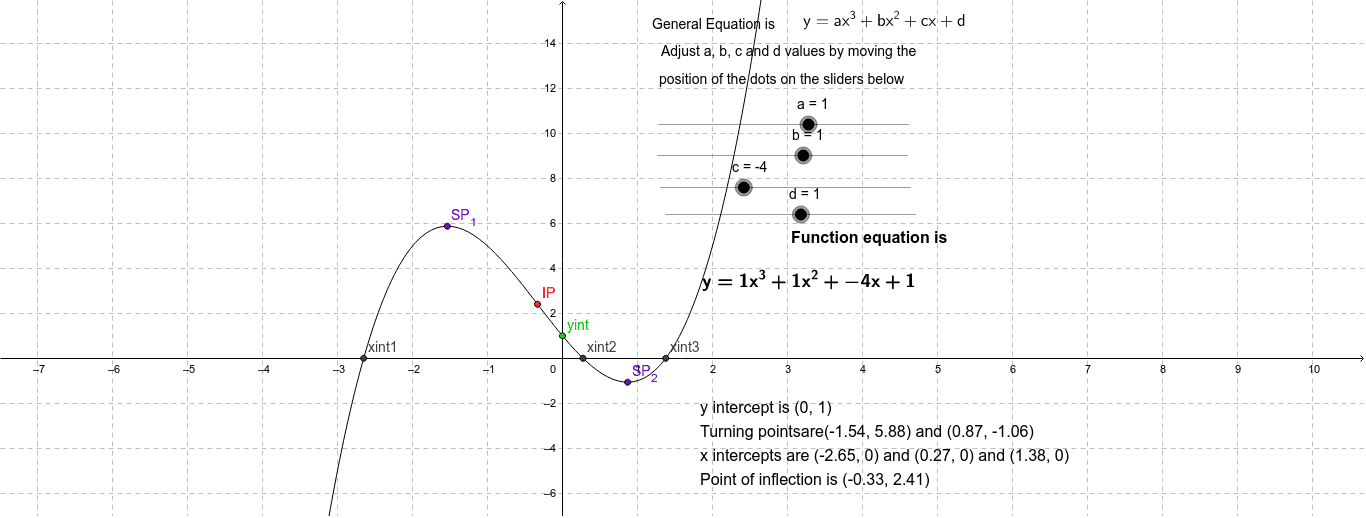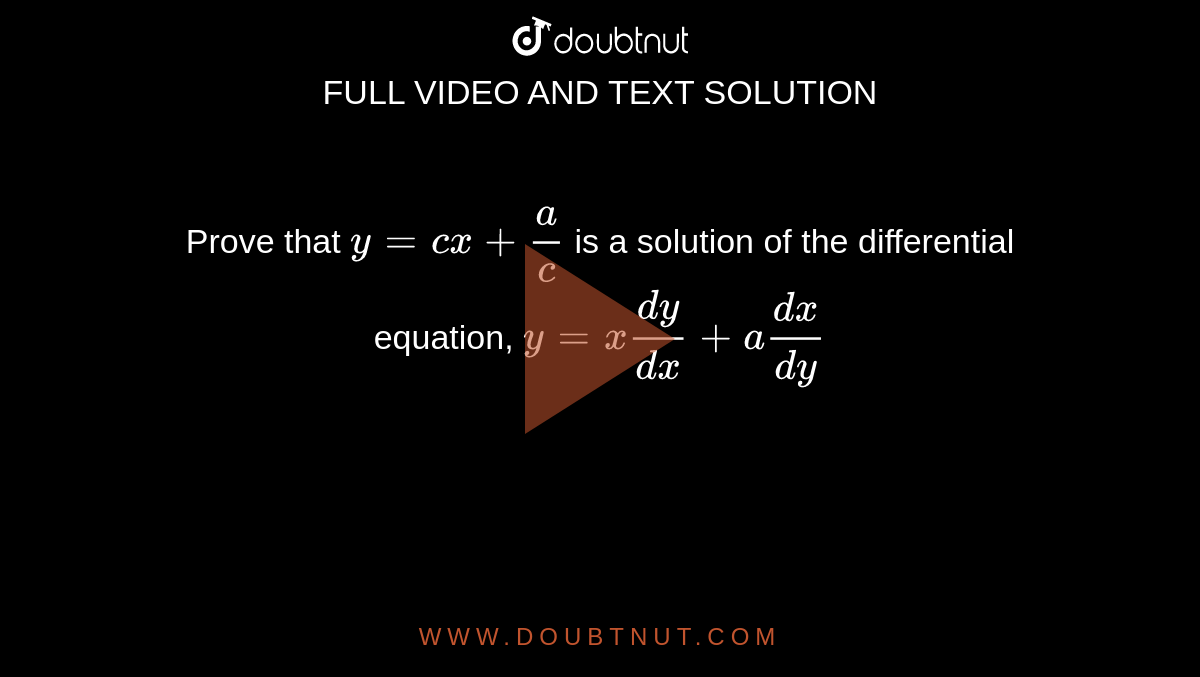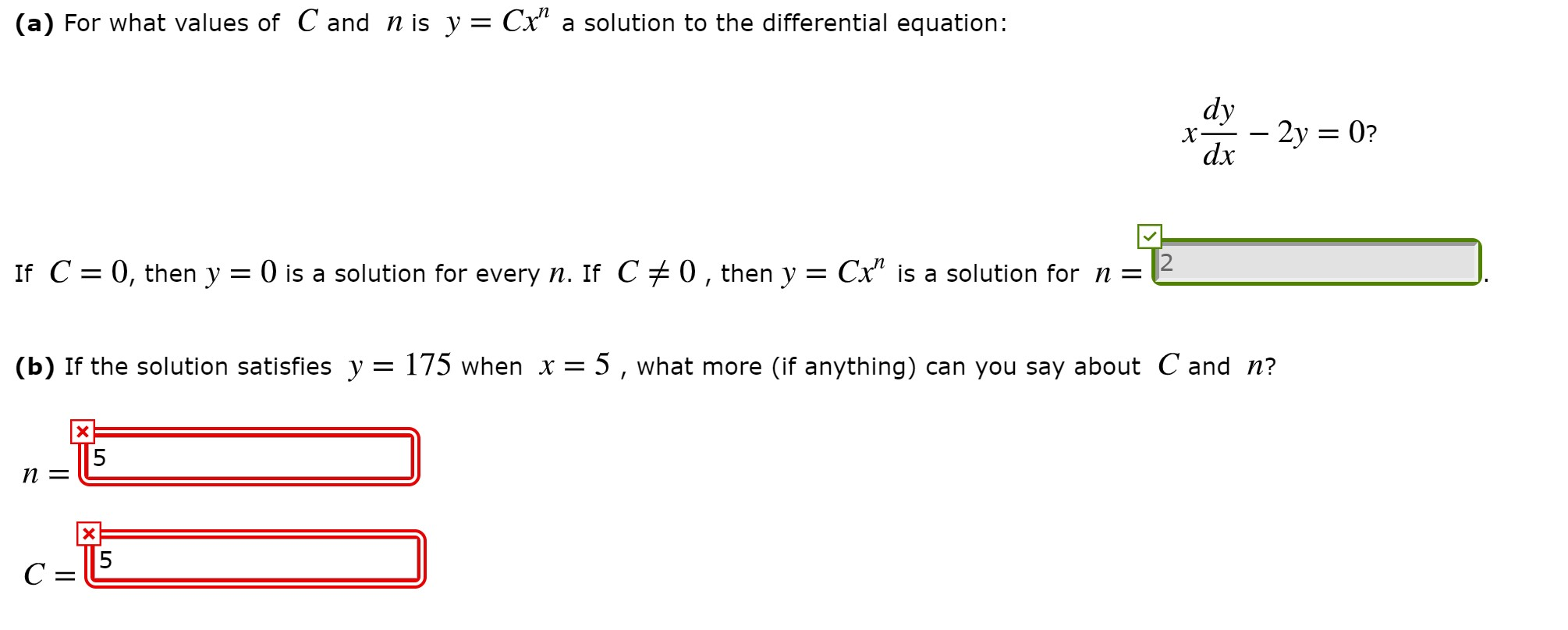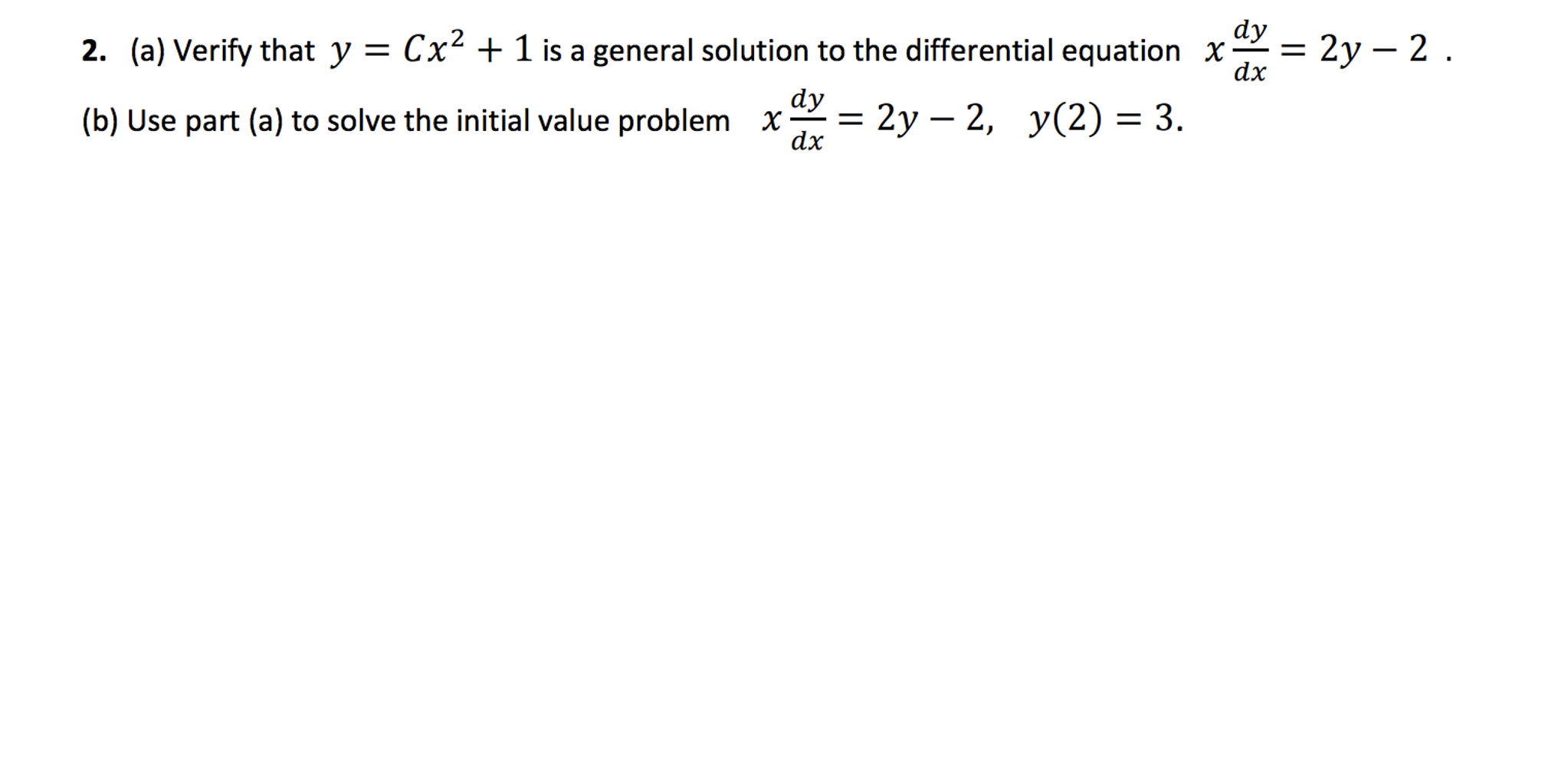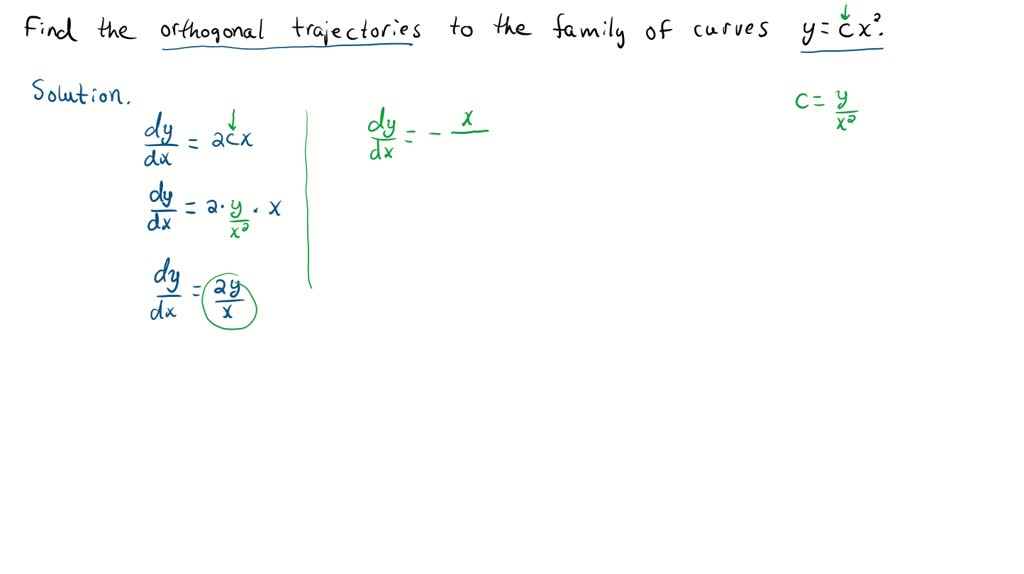
SOLVED:Find the equation of the orthogonal trajectories to the given family of curves. In each case, sketch some curves from each family. y=c x^2

Let m and n be the order and the degree of the differential equation whose solution is, y = cx + c^2 - 3c^3/2 + 2 , where c is a parameter. Then
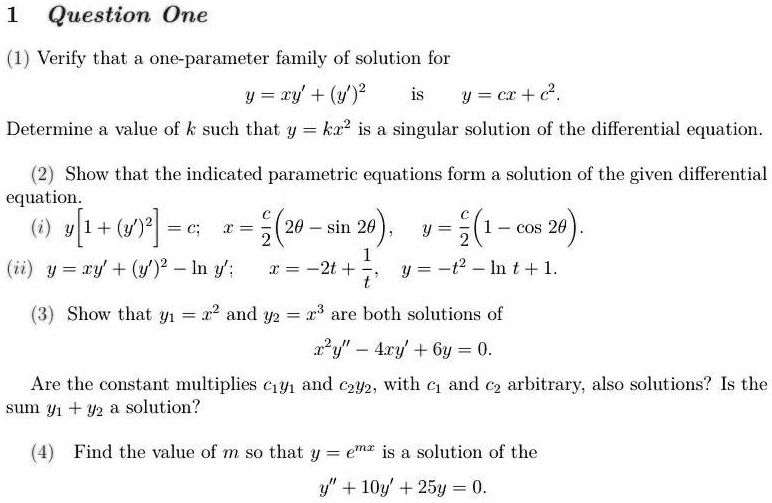
SOLVED: Question One (1) Verify that a one-parameter family of solution for y = ry + (y)2 y = cx + . Determine a value of k such that y = kr

The orthogonal trajectories of the family of curves `y=Cx^(2)`, (C is an arbitrary constant), is - YouTube
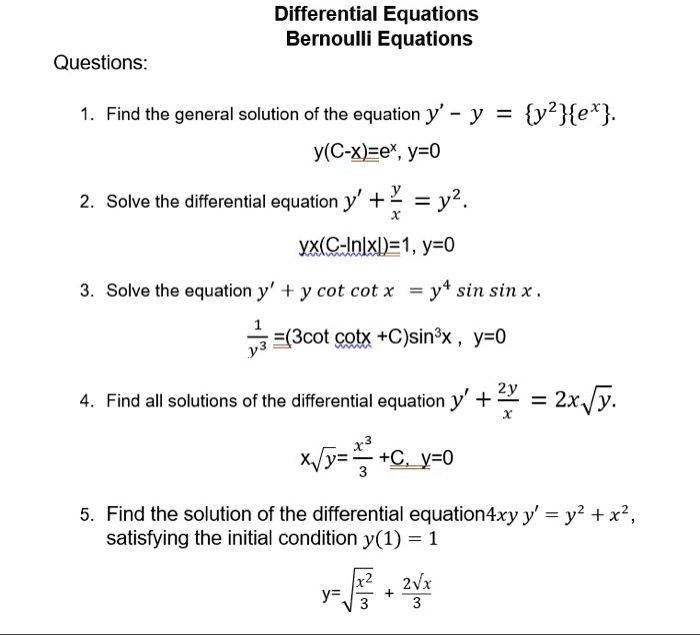
SOLVED: Differential Equations Bernoulli Equations Questions: Find the general solution of the equation y' y = y2ex y(C-x)zex, y-0 Solve the differential equation y' +> =y2 . yx(C-Inlxi)-1, y-0 Solve the equation

Show that `y=(c-x)/(1+c x)` is a solution of the different equation `(1+x^2)dy/(dx)+(1+y^2)=0.` - YouTube
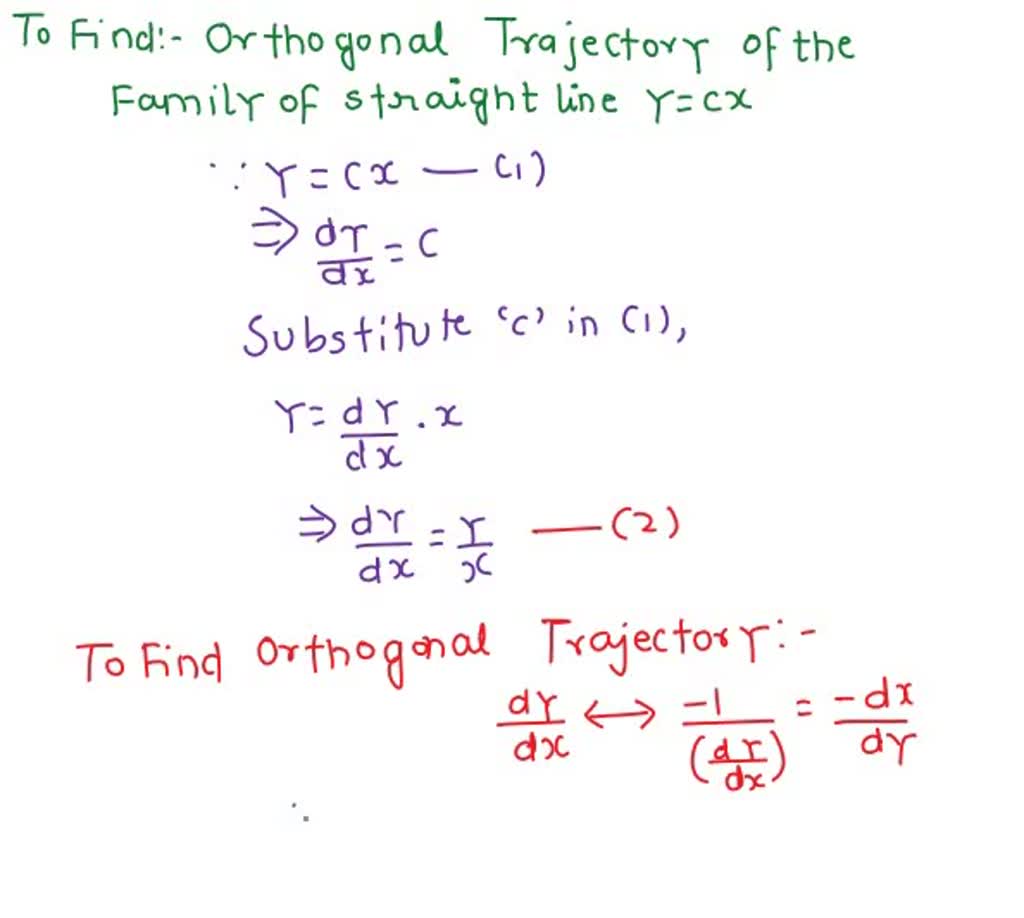
SOLVED: Find the orthogonal trajectories (OT) of the family of straight lines y = Cx. Describe the obtained family of curves/OT.

